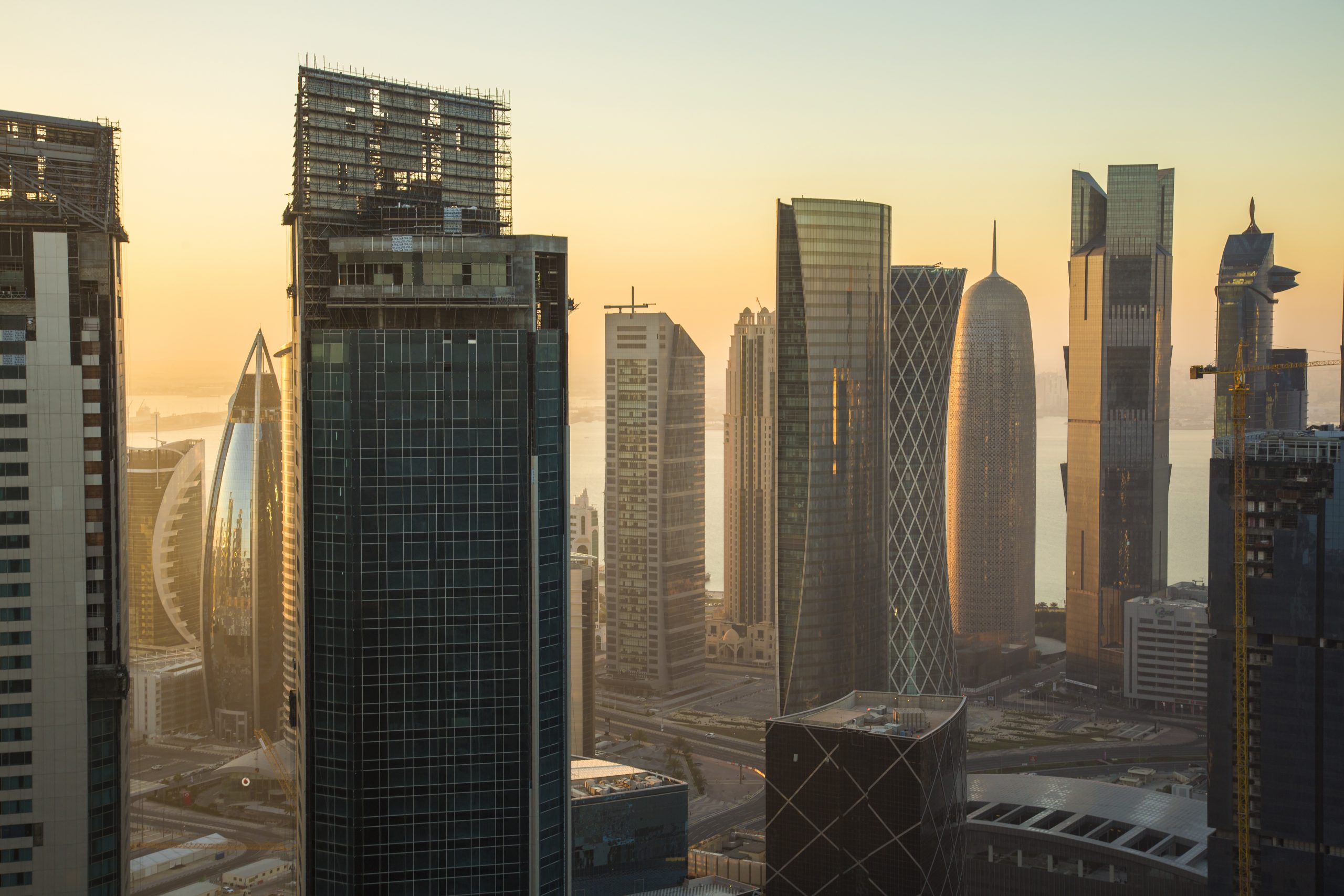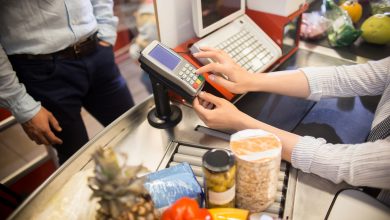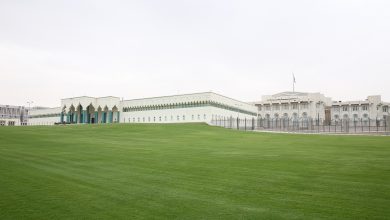Qatari Economy…Successful Policies in Confronting the Pandemic
الاقتصاد القطري.. سياسات ناجحة في مواجهة الجائحة
QNA
Doha: The impacts of Covid-19 crisis on the global economy cast a shadow on the Qatari economy, but the measures taken by the State of Qatar and the economic stimulus packages for the affected economic sectors contributed to the resilience of the Qatari economy, as many indicators show.
Proactive attitude and quick adaptation to changes formed a basic pillar of the country’s plans and programs, and flexibility was adopted to be a main approach in dealing with various regional and international challenges, especially during the current situation witnessed by all countries of the world following the pandemic and the drop in oil and gas prices, as affirmed by HE Minister of Commerce and Industry and Acting Minister of Finance on more than one occasion.
Since the beginning of Covid-19 spread in March 2020, the State adopted a set of flexible proactive measures to prevent the spread of the virus, accompanied by financial stimulus policies for the affected sectors, at a value of QR 75 billion, while exempting food and medical commodities from customs duties for a period of six months, in an early response to any future repercussions or consequences of the pandemic. These policies had an important role in reviving the resilience of the Qatari economy.
Qatar Central Bank (QCB) also directed the banks to postpone loan payments and its interest/profits, for those who wish from the affected sectors covered by the decisions of the Supreme Committee for Crisis Management, for a period of six months, as well as provide additional liquidity to banks operating in the country. Qatar Development Bank (QDB) has been directed to postpone the installments of all borrowers for a period of six months. Government funds also increased their investments in the stock exchange by QR 10 billion.
This coincided with the State of Qatar adopting a balanced monetary policy to face the repercussions of the pandemic by reducing its main interest rates, to include the official deposit rate, lending rate and the repurchase rate, in addition to a set of measures to provide the necessary liquidity for banks to face any possible recession.
In mid-April this year, the Cabinet approved additional support packages for the sectors affected by the closures due to the precautionary measures in place to deal with the spread of Covid-19.
The support packages included the exemption from electricity and water fees for closed sectors until the end of September 2021, extension of the work of the National Guarantee Program at Qatar Development Bank until the end of September 2021, and the extension of the interest exemption period for an additional year for the National Guarantee Program making it two years without interest in addition to two years of payment with interest that does not exceed the Qatar Central Bank rate + 2%.
The packages also included raising the limits of financing for salaries and wages for closed sectors to QR 15 million for a single personal card, while maintaining the rest of the relevant terms and conditions, and Qatar Central Bank continuing to support local banks’ liquidity as needed.
These policies were not the only ones that contributed to the resilience of the Qatari economy in the face of the Coronavirus crisis, as it came at a time when the country was moving forward in developing economic legislation that reflected a forward-looking vision for the future, which mitigated the repercussions of crises and challenges facing the global economy.
Among the most prominent of these legislations was the regulation of the investment of non-Qatari capital in economic activities, which allows non-Qatari to invest in all sectors, including banks and insurance companies. The law also allows foreign investors to own 100 percent in most sectors of the economy, in addition to Law No. 12 of 2020 regulating the partnership between the public and private sectors and the law regulating the ownership and use of real estate by non-Qataris, which allows foreigners to own real estate in accordance with specified controls.
Qatar’s moves to diversify its economy have also contributed to facing economic crises and challenges, including investment in vital and important sectors, such as health and technology, development of free zones, and the continuation of giant infrastructure projects such as the expansion of Hamad International Airport (HIA) and Hamad Port, which will entrench the country’s economic openness.
In this context, General Manager of Qatar Chamber (QC) Saleh bin Hamad Al Sharqi affirmed in an exclusive statement to Qatar News Agency (QNA) that the economic policies pursued by the State have proven their effectiveness during the COVID-19 crisis, as the Qatari economy was able to overcome the negative effects of the crisis, maintain its flexibility and continue to attract more investment. Economic activity began to return to pre-Covid levels, prompted by the financial package approved by the government with the aim of helping the private sector overcome the crisis, he added.
Al Sharqi praised the laws and legislation approved by the State during the past few years, stressing that they contributed to preventing major impacts on the economy and helped to overcome the crisis with minimal losses, especially the Public-Private Partnership (PPP) Law, the Investment of Non- Qatari Capital Law and other important legislation.
Qatar’s various economic indicators confirm that the measures taken, the stimulus packages provided, the fiscal policies pursued, as well as the improvement in oil prices, have reflected positively at various economic levels.
Data from the Ministry of Finance (MOF) showed that the balance of the State’s budget shifted from a projected deficit to a surplus of about QR 0.2 billion, in order to improve the efficiency of spending that coincided with the promotion of revenue collection, which in the first quarter of 2021 amounted to QR 45.2 billion, while total expenditure amounted to QR 45.0 billion for the same period.
Many indicators also show that the Qatari economy is on the way to recovery and in a record period, as the data of the Planning and Statistics Authority revealed that the trade balance of the State of Qatar achieved during the first quarter of this year a surplus of QR 39.9 billion, compared to the surplus of the trade balance for the first quarter of last year, which amounted to QR 33.6 billion.
During the first quarter of 2021, the value of Qatari exports, including exports of local goods and re-exports, amounted to QR 64.0 billion, an increase of QR 4.5 billion.
The State’s merchandise trade balance data revealed a huge leap in May 2021, as the ratio amounted to 211.4 percent on an annual basis (compared to May 2020) and it recorded a monthly increase of 29.9 percent compared to April of this year, to reach QR 16.6 billion.
The value of the total Qatari exports, which includes exports of local origin and re-exports, rose to approximately QR 24.9 billion, an increase of 87.8 percent compared to May 2020, and 18.9 percent compared to April 2021.
On the other hand, the value of merchandise imports increased, amounting to about QR 8.3 billion, an increase of 4.7 percent, on an annual basis, and a monthly increase of about 1.7 percent compared to April 2021.
As for the exports of the private sector, they have started to improve and grow in recent months, after facing a decline due to the repercussions of the pandemic, as their value amounted to about QR 1.2 billion in November 2020 and rose to QR 1.33 billion in December 2020.
The exports of the private sector rose to QR 1.5 billion in January 2021, before rising again to QR 1.64 billion in February of the same year, achieving the highest increase in 10 months, to jump again to QR 1.94 billion in March, achieving the highest level since the start of the COVID-19 pandemic and a record increase of 238 percent.
The industrial sector also achieved remarkable growth during the past year, as official data showed the growth of the number of industrial establishments registered in the country during 2020 to 927 industrial facilities compared to 862 facilities in 2019, with investments worth about QR 263 billion.
In addition, the private sector had a vital and important role in facing the pandemic, as Qatar Chamber launched initiatives and activities that contributed to alleviating the impact of the crisis on business sectors and stimulating companies.
In this context, Al Sharqi highlighted the role played by Qatar Chamber during the COVID-19 pandemic, by contributing to the society, especially through the “Takatuf Initiative”, which strove to encourage all members of the Chamber from the private sector, public shareholding companies and businesspersons, to participate in supporting the State’s efforts to limit the spread of COVID-19.
Al Sharqi also pointed out that the Chamber intensified its activities during the last period, and its sectoral committees played a pioneering role in studying all the obstacles facing local companies, while the Chamber discussed them with the concerned authorities to find appropriate solutions for them.
The Qatari private sector has maintained its productivity despite the challenges of the crisis, and has also been able to overcome these challenges, he said, adding that the private sector’s exports have returned to their levels before the COVID-19 and reached many markets.
Thanks to the policies that the country has followed since the beginning of the pandemic to deal with its negative effects, the State of Qatar has been among the top 20 countries that introduced reforms related to facilitating business activities last year out of 190 countries, according to the World Bank Group (WBG).
These indicators were reflected in the optimistic expectations of the Qatari economy, as a report issued by the World Bank in April 2021, expected that the State of Qatar would register an economic growth of 3 percent and 4.1 percent during 2021 and 2022 -respectively- compared to a contraction of 3.2 percent.
قنا
الدوحة: ألقت التأثيرات التي طرأت على الاقتصاد العالمي خلال أزمة كورونا /كوفيدـ19/، بظلالها على الاقتصاد القطري، غير أن الإجراءات التي اتخذتها دولة قطر وحزم التحفيز الاقتصادي للقطاعات الاقتصادية المتضررة ساهمت في صمود الاقتصاد القطري في وجه الجائحة، كما تظهر العديد من المؤشرات.
وشكل التفكير الاستباقي وسرعة التأقلم مع المتغيّرات ركيزةً أساسية لخطط وبرامج الدولة، كما تم اعتماد المرونة لتكون نهجًا رئيسيًا في التعامل مع مختلف التحديّات الإقليمية والدولية لا سيما خلال الوضع الراهن الذي شهدته كافة دول العالم إثر تفشي الوباء وانخفاض أسعار النفط والغاز، كما أكد سعادة وزير التجارة والصناعة والقائم بأعمال وزير المالية في أكثر من مناسبة.
فمع بدء انتشار فيروس كورونا في شهر مارس من العام 2020، سارعت الدولة إلى إقرار مجموعة من الإجراءات الاستباقية المرنة لمنع تفشي الفيروس، مصحوبة بسياسات تحفيز مالي للقطاعات المتضررة وبقيمة 75 مليار ريال، مع إعفاء السلع الغذائية والطبية من الرسوم الجمركية لمدة ستة أشهر، وذلك في استجابة مبكرة لأي تداعيات أو تبعات مستقبلية للجائحة، وكان لهذه السياسات دور مهم في إنعاش صمود الاقتصاد القطري.
كما وجه مصرف قطر المركزي البنوك لتأجيل أقساط القروض المستحقة والفوائد أو العوائد المترتبة عليها، لمن يرغب من القطاعات المتضررة التي شملتها قرارات اللجنة العليا لإدارة الأزمات، وذلك لمدة ستة أشهر، فضلا عن توفيره سيولة إضافية للبنوك العاملة بالدولة، وتوجيه بنك قطر للتنمية بتأجيل الأقساط لجميع المقترضين لمدة ستة أشهر، كما قامت الصناديق الحكومية بزيادة استثماراتها في البورصة بمبلغ 10 مليارات ريال.
وتزامن ذلك مع اتباع دولة قطر سياسة نقدية متزنة لمواجهة تداعيات الجائحة تمثلت في تقليص أسعار الفائدة الرئيسية لديها، لتشمل سعر الإيداع وسعر الإقراض الرسميين وسعر إعادة الشراء، بالإضافة إلى جملة من الإجراءات لتوفير السيولة اللازمة للبنوك لمواجهة أي ركود محتمل.
وفي منتصف أبريل من العام الجاري، اعتمد مجلس الوزراء، حزم دعم إضافية للقطاعات المُتَضَرِّرَة من الإغلاقات المترتبة على الإجراءات الاحترازية للتعامل مع انتشار /كوفيد-19/، تمثلت في الإعفاء من رسوم الكهرباء والماء للقطاعات المغلقة إلى نهاية سبتمبر 2021، ومد العمل ببرنامج الضمانات الوطني لدى بنك قطر للتنمية إلى نهاية سبتمبر 2021، ومد فترة الإعفاء من الفوائد سنة إضافية لبرنامج الضمانات الوطني لكي يصبح سنتين دون فوائد، بالإضافة إلى سنتين سداد بفائدة لا تتجاوز سعر مصرف قطر المركزي + 2 في المئة.
كما تضمنت حزم الدعم، رفع حدود تمويل الرواتب والأجور للقطاعات المغلقة إلى 15 مليون ريال للبطاقة الشخصية الواحدة مع الإبقاء على باقي الشروط والأحكام ذات الصلة، واستمرار مصرف قطر المركزي في دعم سيولة البنوك المحلية حسب الحاجة.
ولم تكن تلك السياسات والمعالجات هي وحدها التي ساهمت في صمود الاقتصاد القطري أمام أزمة كورونا، بل إن هذه الأزمة جاءت في وقت كانت الدولة، تمضي قدما في تطوير التشريعات الاقتصادية التي عكست رؤية استشرافية للمستقبل، وهو ما خفف من تداعيات الأزمات والتحديات التي واجهت الاقتصاد العالمي.
وكان من أبرز تلك التشريعات تنظيم استثمار رأس المال غير القطري في النشاط الاقتصادي، والذي يتيح لغير القطريين الاستثمار في جميع القطاعات، بما فيها البنوك وشركات التأمين، كما يسمح القانون بالتملك للمستثمر الأجنبي بنسبة 100 في المئة في غالبية قطاعات الاقتصاد، علاوة على القانون رقم /12/ لسنة 2020 بتنظيم الشراكة بين القطاعين الحكومي والخاص وقانون تنظيم تملك غير القطريين للعقارات والانتفاع بها، والذي يجيز للأجانب تملك العقارات وفقا لضوابط تم تحديدها.
كما أن التوجهات التي بدأتها دولة قطر نحو تنويع اقتصادها ساهمت هي الأخرى في مواجهة الأزمات والتحديات الاقتصادية، ولعل من بينها الاستثمار في قطاعات حيوية ومهمة منها الصحة والتكنولوجيا، وتطوير المناطق الحرة، ومواصلة مشاريع البنى التحتية العملاقة كتوسعة مطار حمد الدولي وميناء حمد بما يرسخ الانفتاح الاقتصادي للبلاد.
وفي هذا السياق، يؤكد السيد صالح حمد الشرقي مدير عام غرفة قطر في تصريح خاص لوكالة الأبناء القطرية /قنا/ أن السياسات الاقتصادية التي تنتهجها الدولة قد أثبتت نجاعتها خلال أزمة كورونا، حيث استطاع الاقتصاد القطري أن يتغلب على الآثار السلبية للأزمة وأن يحافظ على مرونته ويستمر في جذب مزيد من الاستثمارات، كما بدأ النشاط الاقتصادي يعود إلى مستويات ما قبل كورونا، مدفوعا بالحزمة المالية التي أقرتها الحكومة بهدف مساعدة القطاع الخاص على تخطي الأزمة.
وأشاد الشرقي بالقوانين والتشريعات التي أقرتها الدولة خلال السنوات القليلة الماضية، مؤكداً أنها ساهمت في الحيلولة دون حدوث تأثيرات كبيرة على الاقتصاد كما ساعدت في تجاوز الأزمة بأقل الخسائر، خاصة قانون الشراكة بين القطاعين العام والخاص وقانون استثمار رأس المال غير القطري وغيرها من التشريعات المهمة.
وتؤكد المؤشرات الاقتصادية المختلفة لدولة قطر أن الإجراءات التي تم اتخاذها والحزم التحفيزية المقدمة، والسياسات المالية المتبعة، فضلا عن تحسن أسعار النفط قد انعكست إيجابا على مختلف الأصعدة الاقتصادية.
وأظهرت بيانات لوزارة المالية، أن رصيد الموازنة العامة للدولة تحول من عجز متوقع إلى فائض يبلغ حوالي 0.2 مليار ريال، وذلك لتحسن كفاءة الإنفاق التي تزامنت مع تعزيز تحصيل الإيرادات، التي بلغت في الربع الأول من عام 2021 ما مقداره 45.2 مليار ريال، في حين تم تسجيل مصروفات إجمالية بمقدار 45.0 مليار ريال لنفس الفترة.
كما تظهر العديد من المؤشرات أن الاقتصاد القطري في طريقه نحو التعافي وخلال فترة قياسية، حيث كشفت بيانات جهاز التخطيط والإحصاء أن الميزان التجاري لدولة قطر حقق خلال الربع الأول من العام الجاري فائضاً مقداره 39.9 مليار ريال مقارنة بفائض الميزان التجاري للربع الأول من العام الماضي الذي بلغ 33.6 مليار ريال.
وبلغت قيمة الصادرات القطرية بما في ذلك الصادرات من السلع المحلية وإعادة التصدير خلال الربع الأول من العام الجاري ما قيمته 64.0 مليار ريال، بارتفاع قدره 4.5 مليار ريال قطري.
كما أظهرت بيانات الميزان التجاري السلعي للدولة قفزة كبيرة في شهر مايو الماضي إذ بلغت النسبة 211.4 في المئة على أساس سنوي /قياسا بشهر مايو 2020/، كما سجل زيادة شهرية بنسبة 29.9 بالمئة بالمقارنة مع أبريل من العام الجاري، ليصل إلى 16.6 مليار ريال.
وصعدت قيمة إجمالي الصادرات القطرية /التي تشمل الصادرات ذات المنشأ المحلي وإعادة التصدير/ إلى 24.9 مليار ريال تقريباً أي بارتفاع نسبته 87.8 في المئة مقارنة بشهر مايو عام 2020، وبنسبة 18.9 في المئة عند المقارنة مع شهر أبريل عام 2021.
وفي المقابل، ارتفعت قيمة الواردات السلعية، لتصل إلى نحو 8.3 مليار ريال بنسبة زيادة بلغت 4.7 في المئة، على أساس سنوي، كما سجلت ارتفاعا شهريا بنحو 1.7 في المئة قياسا بشهر أبريل عام 2021.
أما عن صادرات القطاع الخاص فقد بدأت بالتحسن والنمو خلال الأشهر الأخيرة، بعد أن كانت قد شهدت تراجعاً بسبب تداعيات الجائحة، حيث بلغت قيمتها نحو 1.2 مليار ريال في نوفمبر 2020 وارتفعت إلى 1.33 مليار ريال في ديسمبر 2020، ثم ارتفعت إلى 1.5 مليار ريال في يناير 2021 لترتفع مرة أخرى إلى 1.64 مليار ريال في فبراير من العام ذاته محققة أعلى ارتفاع في 10 أشهر، لتقفز مجددا إلى 1.94 مليار ريال في شهر مارس محققة أعلى مستوى منذ بدء جائحة كورونا وبارتفاع قياسي بنسبة 238 في المئة.
كما حقق القطاع الصناعي نموا ملحوظاً خلال العام الماضي، حيث أظهرت بيانات رسمية نمو عدد المنشآت الصناعية المسجلة بالدولة خلال العام 2020 إلى /927/ منشأة صناعية مقارنة بـ/862/ منشأة في العام السابق، وباستثمارات تبلغ قيمتها نحو 263 مليار ريال.
وبجانب ذلك فقد كان للقطاع الخاص دور حيوي ومهم في مواجهة الجائحة، حيث أطلقت غرفة قطر مبادرات وأنشطة ساهمت في تخفيف وطأة الأزمة على قطاعات الأعمال وتحفيز الشركات.
وفي هذا السياق يشير الشرقي إلى الدور الذي لعبته غرفة قطر خلال أزمة /كوفيد-19/ من خلال القيام بدورها تجاه المجتمع، لا سيما من خلال مبادرة /تكاتف/ التي سعت إلى تشجيع كافة منتسبي الغرفة من القطاع الخاص والشركات المساهمة العامة ورجال الأعمال، للمشاركة في دعم جهود الدولة للحد من انتشار فيروس كورونا /كوفيد-19/.
ولفت الشرقي إلى أن الغرفة كثفت من أنشطتها خلال الفترة الماضية، كما قامت لجانها القطاعية بدور رائد في دراسة كافة المعوقات التي تواجه الشركات المحلية وقامت الغرفة بمناقشتها مع الجهات المعنية لإيجاد حلول مناسبة لها.. مضيفا أن القطاع الخاص القطري حافظ على إنتاجيته بالرغم من تحديات الأزمة، كما أنه استطاع أن يتغلب على هذه التحديات وعادت صادرات القطاع الخاص إلى مستوياتها قبل /كورونا/ ووصلت إلى أسواق كثيرة.
وبفضل السياسات التي اتبعتها الدولة منذ بدء الجائحة للتعامل مع تأثيراتها السلبية، فقد حلت دولة قطر ضمن قائمة أفضل عشرين دولة قدمت إصلاحات تتعلق بتسهيل أنشطة ممارسة الأعمال للعام الماضي من بين مئة وتسعين دولة، وذلك وفقا لمجموعة البنك الدولي.
وقد انعكست هذه المؤشرات على التوقعات المتفائلة للاقتصاد القطري، حيث توقع تقرير أصدره البنك الدولي في أبريل الماضي، أن تسجل دولة قطر نموا اقتصاديا بنسبة 3 في المئة، و4.1 في المئة خلال عامي 2021 و2022 على التوالي، وذلك مقارنة مع انكماش بنسبة 3.2 في المئة في 2020.




